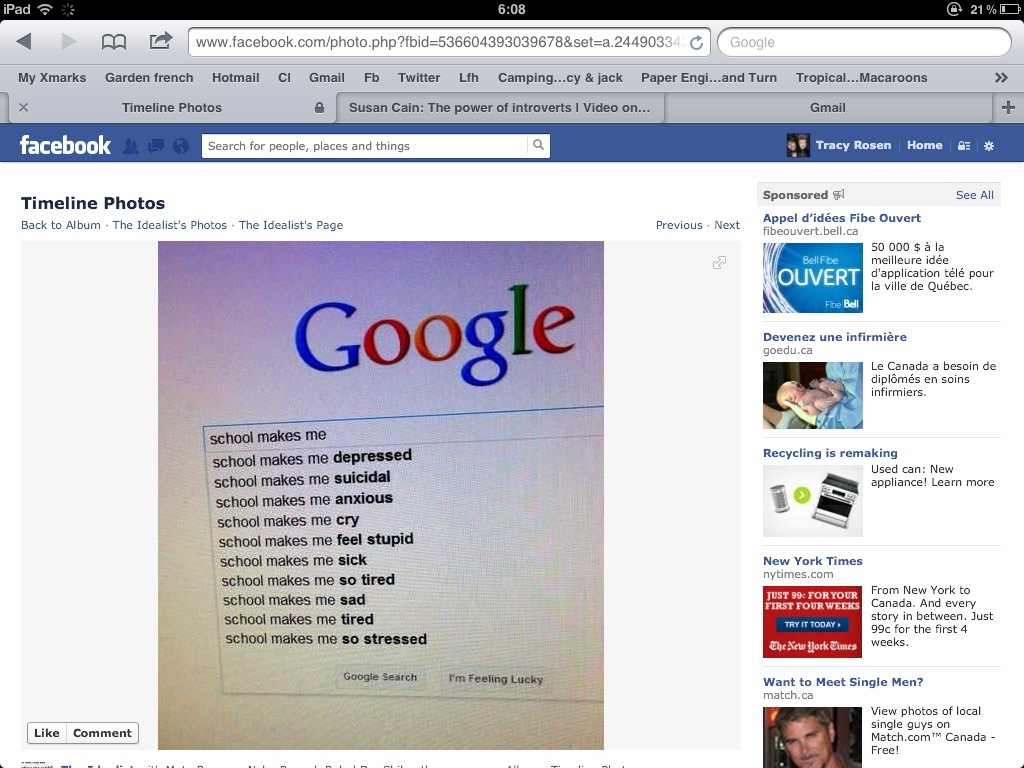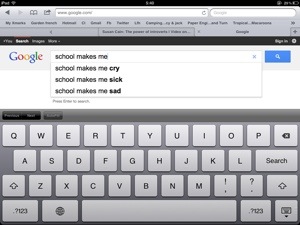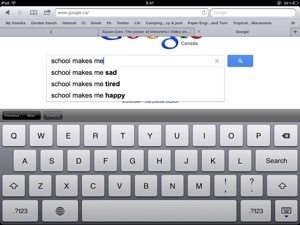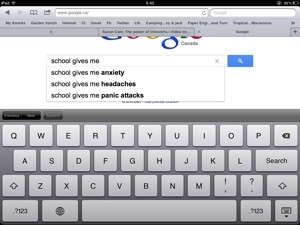**originally published on 2011-02-20 07:51:20**
A long while ago (we’re talking 3 months people!), Angela left a meaty, thought-provoking comment on my post Why are we arguing that social networking does not have neg. effect on school & learning?. I apologize for not having acknowledged it, let alone responded to it, when it was made! The past few months have been a whirlwind of pre-baby/post-partum/new life changes :) At least Laura replied to some of what Angela said in her comment on the original post – thanks Laura!
The whole issue is a mammoth woolly elephant in the chat room, trolling in the background but not allowed to participate. Angela highlighted some key points that I’d like to further underline here.
She asked: Who is teaching kids about this? (social networking and mind/body/spirit balance)
Some people are thinking about this. If I do a quick Google search I find resources like:
Social networking sites: Finding a balance between their risks and benefits from Internet Solutions for Kids.
Minding MySpace: Balancing the benefits and risks of kids’ online social networks from California Schools Magazine
Generation text: Raising well-adjusted kids in an age of instant everything by Michael Osit
Parents: Instead of Banning Your Kids from Social Networks, Consider Teaching Responsible Usage from Managing Communities.
But none of these really address the issue of explicitly teaching kids life balance in an age of social networking. So I refined my search to responsible social networking lesson plan and found a few more things, including:
Responsible social networking – Secondary which has a lesson plan you can download
I’ve been talking about this myself for a while. Here’s a post from 2007, Facing up to Facebook where I wrote,
We need to be teaching kids about the realities of online social networks like facebook, and we need to be helping parents to do the same.
And one from 2008, Implications of Facebook Use. I used the story targeted in this post in my grade 11 classroom that year. I felt that since social networking is part of my teaching and such a huge part of my students’ lives it was essential that I teach about it.
But I didn’t find any explicit examples of teachers addressing the issue of how to balance our lives in an age of such public, 24 hour, social networking as we have now. Perhaps I didn’t look in the right places and perhaps such teaching is happening but isn’t being documented (such as in my example above, where I used something in my classroom but did not write about how I did so). I’d love to see some examples. I don’t mean examples of sites that offer tools to teach responsible and balanced social networking, but examples of teachers actually doing it in their classrooms.
Angela reflected: …it used to be that when social drama fired up at school, kids could find solace at home and experience a bit of a cooling-off period where they were away from the tension.
This begs me to ask, are we providing kids with access to tension-free environments in a time when the social sphere has no boundaries?
And finally, Angela writes: It’s hard to find conversations like these (that look at the positives and negatives of social networking) inside of my network though, and when I start them, most people disengage pretty quickly. Why do you think this is the case?
I think that the implications of the social networking debate is that it has created 2 camps – for or against. As educators and parents we may not understand how to balance our own thoughts and actions to do with social networking. We may also think ‘if I am for social networking, how can I speak out against it?’
Before we can teach about life-balance and social networking we need to know what it is and as long as we don’t allow it to participate in our conversations we won’t, will we?





